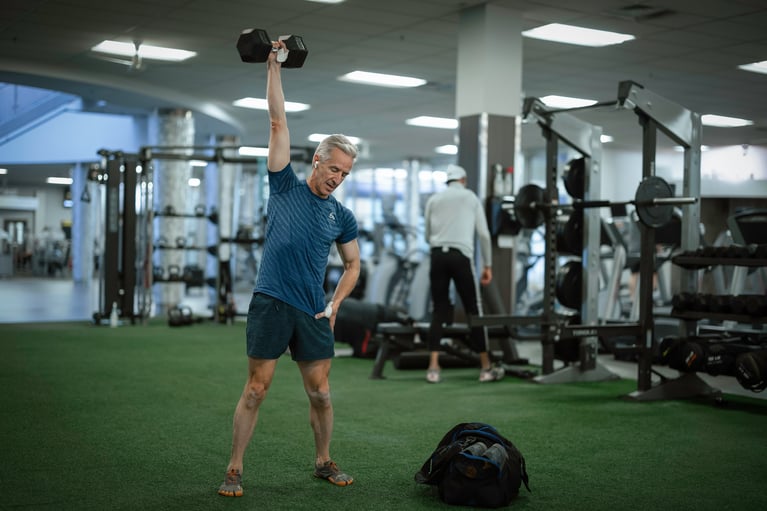
Recent headlines have made us question the benefits of eggs, yet again. Newspapers, like the New York Post, have recently unleashed a study claiming “Eggs can lead to higher risk of cardiovascular trouble” and other similar frightening headlines. Therefore, causing an uproar (naturally) and leading us to question a beloved breakfast food. So, is this true? Do I need to cut eggs out of my diet?
Breaking down the article:
The article used by headlines was based on a study where authors collected data of 30,000 people over 17 years. The people involved in the study were asked about their dietary intake, once, at the very beginning of the study. The study goes on and says that participants who ate more eggs than the other participants who ate fewer eggs had more cardiovascular issues, even death.
It is important to distinguish that this study was an observational, population-based study and the results indicated an association with egg intake and cardiovascular risk. However, correlation doesn’t prove causation. What this means is that while eggs and cardiovascular events may be related in some way, there’s no real proof that they are, so researchers are taking an educated guess about the relationship. The participants involved in the study were interviewed about their food intake once, 17 years ago. The study didn’t control what they ate over the 17-year time period, nor did they ask them how their diets changed over 17 years. Sure, they may have eaten eggs every day, but did they also eat ultra-processed foods and other foods that are high in saturated and trans fats? We (and the researchers) have no idea! The study controlled lifestyle factors like smoking and activity, which are known risk factors for heart disease, but it did not consider socioeconomic status or stress levels, which also impact cardiovascular risk.
The bottom line is that correlation does not equal causation. And because the study didn’t control every participant’s diet for 17 years, the observations really don’t prove that eggs have a negative impact on heart health.
So, knowing this, let’s break down what we know about the egg- just for affirmation purposes!
Do eggs have nutritional value?
Yes!! Eggs contain about 7g of protein and essential nutrients including Vitamin A, D, B12, B6, iron, zinc, and choline. Eggs are actually one of the few foods that have naturally occurring Vitamin D, important for bone health and promoting neuromuscular function.
Ok, but what about the cholesterol and fat content?
Eggs, specifically egg yolks, do contain cholesterol, but recent scientific evidence indicates that dietary cholesterol does not turn into blood cholesterol, as once believed, and that consuming moderate amounts of dietary cholesterol does not appear to increase the risk for heart disease in healthy individuals. Egg yolks also contain fat, although they have a greater amount of UNsaturated fat (the good fat, 2.7g) vs saturated fat (not so good fat, 1.5g). Unsaturated fat is an important nutrient of our body to function properly!
I only eat egg whites, is that ok?
Egg whites contain about 3.6g of protein, are low in fat and cholesterol but do not contain many of the valuable nutrients found in the yolk. It was originally encouraged to skip the egg yolk because of the cholesterol and fat content, but now we know that dietary cholesterol has little impact on blood cholesterol and that fat is an important part of our balanced diet! The yolk contains most of the essential nutrients and contributes about 40% of the egg’s protein content. So, if you’re only eating the egg whites because you think you are being healthier, I would encourage you to include some yolks! But if you are only eating egg whites because you enjoy it, then ok!
Remember that your diet needs variety and all foods fit in moderation. Are eggs a good choice of protein and hold nutritional value? Yes! Should you eat eggs all day, every day?? Maybe not. Variety is an important part of a healthy lifestyle because every food offers unique nutrients needed for a healthy, functioning body! Food should be fun, and limiting yourself to only eating one type of food takes creativity out of eating and vital nutrients out of your diet. If you’re looking to add variety to your daily protein, try soy, chicken, legumes, cottage cheese and quinoa!

Haley Bishop is the Registered Dietitian at the Midlothian and Swift Creek American Family Fitness locations. She holds a Bachelor of Science Degree in Nutrition and Dietetics with a Sports Administration concentration and a Master of Science Degree in Nutrition Science from Samford University. She completed her Dietetic Internship from Samford University in 2017.
Since earning the credentials Registered Dietitian, Haley has pursued a nutrition career in sports. She currently works as a Sports RD in the Athletic Department at Virginia Commonwealth University. Her focus is to work with athletes on nutrition strategies that maximize performance. Her background and experience as a collegiate rower help her connect and relate to athletes of all ages. At American Family Fitness, Haley enjoys helping people across the lifespan achieve their personal health and wellness goals through better nutrition.
Article contributed by Geraldine Chapman
Geraldine Chapman is the Director of Information Marketing & Social Media at American Family Fitness in Richmond, VA. She’s been in the fitness industry professionally since 1997 as a personal trainer, group fitness manager, and fitness instructor. She has trained and certified in multiple fitness programs over the years. Her favorites to teach are barre, Active®, Blast®, and Power®. Geraldine graduated from Virginia Commonwealth University with a B.A. in Communication Arts & Design. She is also a Certified High-Performance Coach and Applied Neuro Strategist. She is passionate about researching autoimmune diseases and how lifestyle, fitness, nutrition, and mindset play a vital role in the prevention and management of autoimmune issues. When not working, you can find Geraldine with a camera in hand, enjoying quality time with her family and riding her motorcycle around town.






